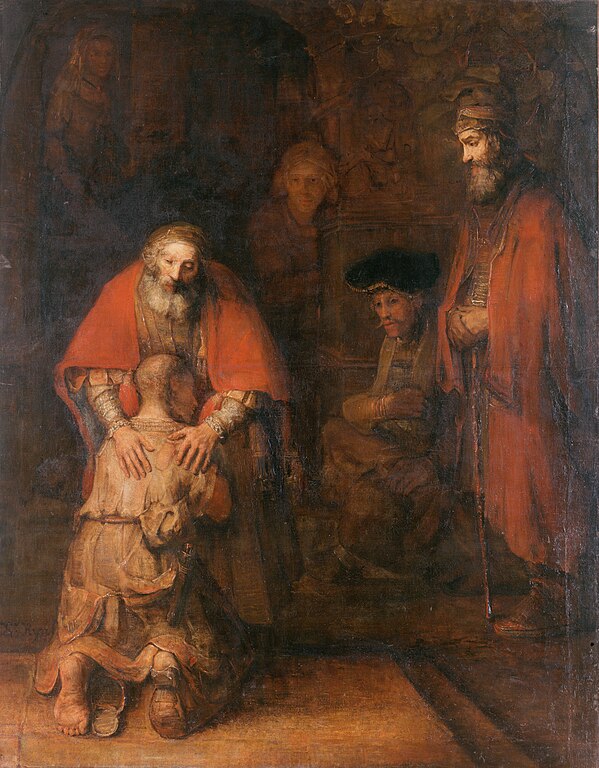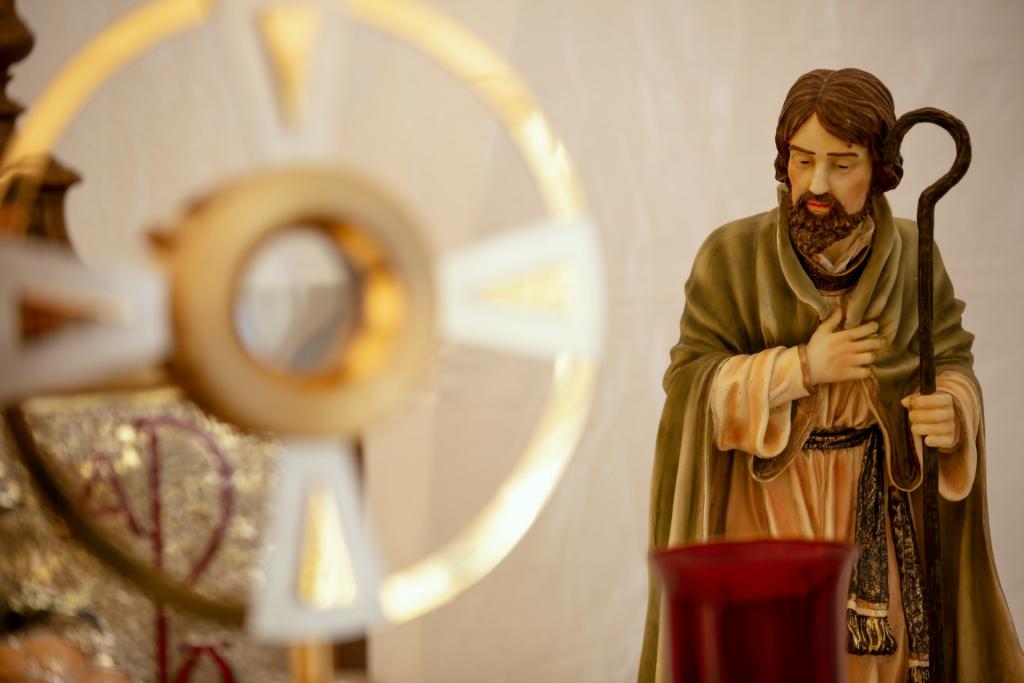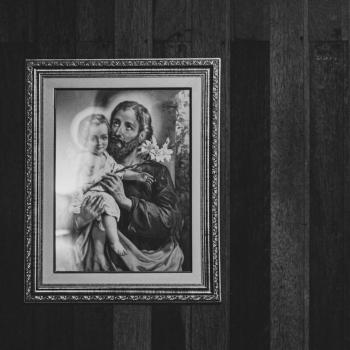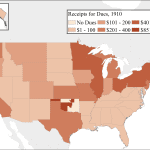June is the month dedicated to the Sacred Heart. I have a deep devotion to the Sacred Heart, but this year I find myself rereading Pope Francis’s apostolic letter Padris Corde or “With a Father’s Heart, written on the occasion of the 150th anniversary of when St. Joseph was proclaimed patron of the Universal Church. Throughout this month, I will be doing a four-part series reflecting on Padris Corde and how it speaks to us Catholic men.
Growing up, I had been accustomed to men telling me to hide my tears or just “shake it off”. Such suggestions were to avoid the risk of showing emotion, coming off as “being weak” to others. I look at my own father, a man of few words and who rarely cries. I can count on one hand how many times he’s ever cried. Being vulnerable and opening up is a tender moment, something that is not new to Pope Francis, who speaks often of building up a culture of tenderness.

In a 2017 TED talk, Pope Francis spoke specifically about tenderness, “Tenderness is the path of choice for the strongest, most courageous men and women. Tenderness is not weakness; it is fortitude. It is the path of solidarity, the path of humility.” Contrary to what the world sees to be weakness, Pope Francis sees tenderness as a path of courage and humility. This certainly was the case for St. Joseph. He never spoke a word, speaking instead through his actions.
To be tender is to be vulnerable. To be vulnerable is to show our humanity. Pope Francis in Padris Corde encourages us to look at our weaknesses with tender mercy. “Tenderness is the best way to touch the frailty that is within us.” Tenderness is an opportunity to open a door to deeper human connection not only with ourselves, but with others. Displays of emotion such as crying is not perceived as being weak, but is understood as being vulnerable, being human. By embracing our weaknesses, we lean on the path of tenderness. Pope Francis mentions that it is in the Sacrament of Reconciliation where we can experience God’s truth and tenderness. “We know that God’s truth does not condemn us, but instead welcomes, embraces, sustains and forgives us.”

In a past life I was a Dominican friar for almost five years. I had the privilege of serving different communities. One of my most memorable experiences was a twelve week internship called clinical pastoral education. I recall conversations with patients and families in the early mornings and late evenings. One aspect of those interactions was the reality of estrangement between family members. Oftentimes it takes someone being in the hospital, this case terminal illness, to bring family members together. Family members who have not spoken in years are now trying to make up for lost time, being present to their loved one whose life is dwindling.
“I wish I had…” or “ I regret…” are phrases I often heard from fathers and sons who had arguments at one point in their relationship, which led to them regretting what they said or did. They eventually reconciled later in life, but at a point where the other was nearing their death. When I asked them why there was no communication all these years, they would say it was fear of judgment that caused them to close the other off. In Padris Corde, Pope Francis talks about God’s truth, “It comes out to meet us, restores our dignity, sets us back on our feet and rejoices for us.”

If we men find ourselves in situations where we fear opening up or see displaying our emotions will make us weak, we are closing ourselves off from the merciful love of the father. Think about going back to reconciliation for the first time in a while, we lean on tenderness so we can open ourselves up to confess our sins to the priest. By God’s grace, when we receive absolution, God’s merciful love pours into our hearts. I remember Pope Francis’s first Angelus in which he said “He [God] never tires of forgiving, but at times we get tired of asking for forgiveness.”
I am sure that St. Joseph feared, but he did let fear stop him from opening himself up to God’s will. Pope Francis continues in Padris Corde:
“Even through Joseph’s fears, God’s will, His history and His plan were at work. Joseph, then, teaches us that faith in God includes believing that he can work through our fears, our frailties, and our weaknesses.”
We are human and it is ok to fear and it is ok to be weak. We are called to believe that God can work even through our fears and weaknesses to bring about his kingdom. As I bring this reflection to a close, I invite you to consider leaning on the path of tenderness. Embrace your fears and weaknesses, offer them to our merciful Father, and walk this path of courage and humility! St. Joseph, pray for us!


















